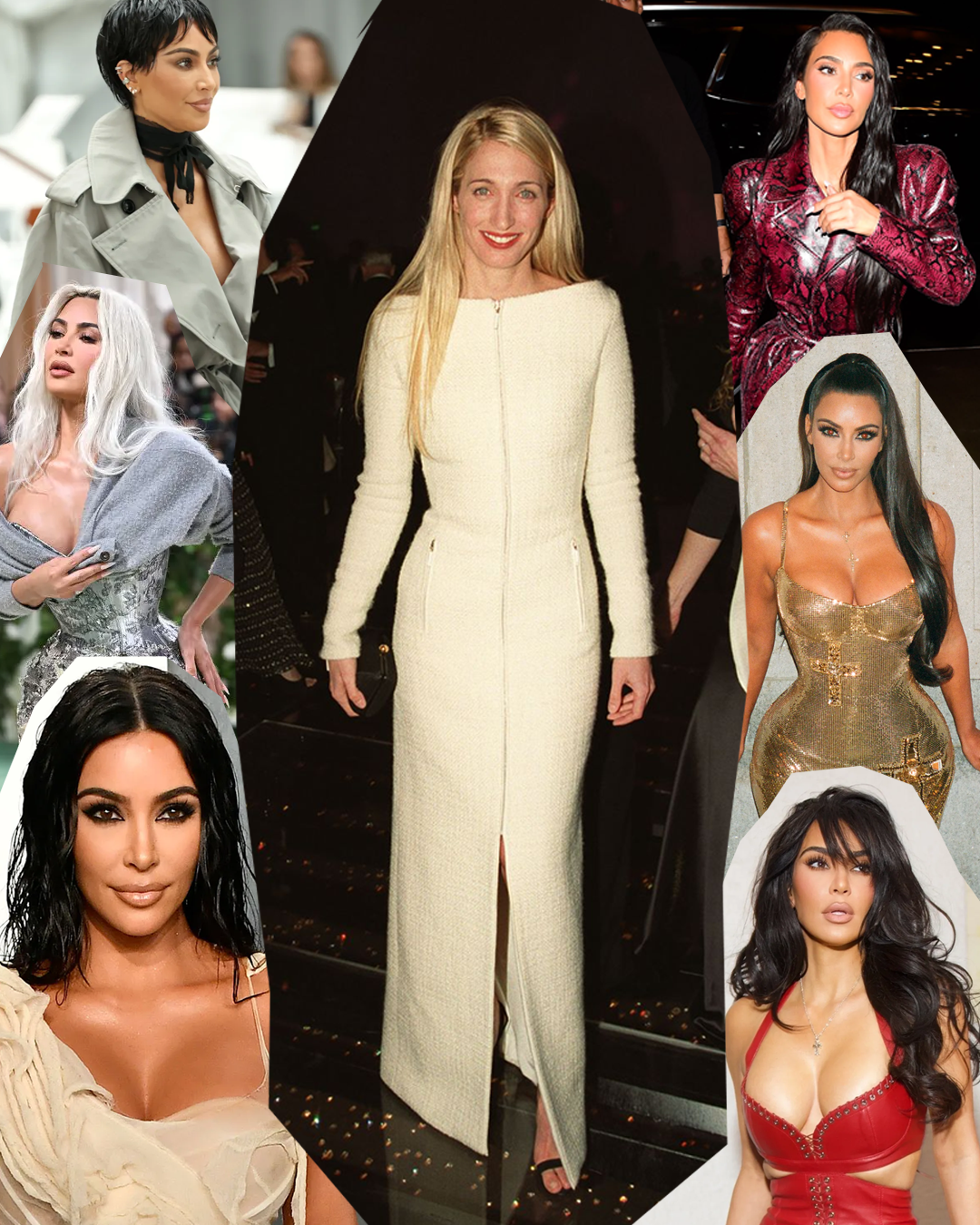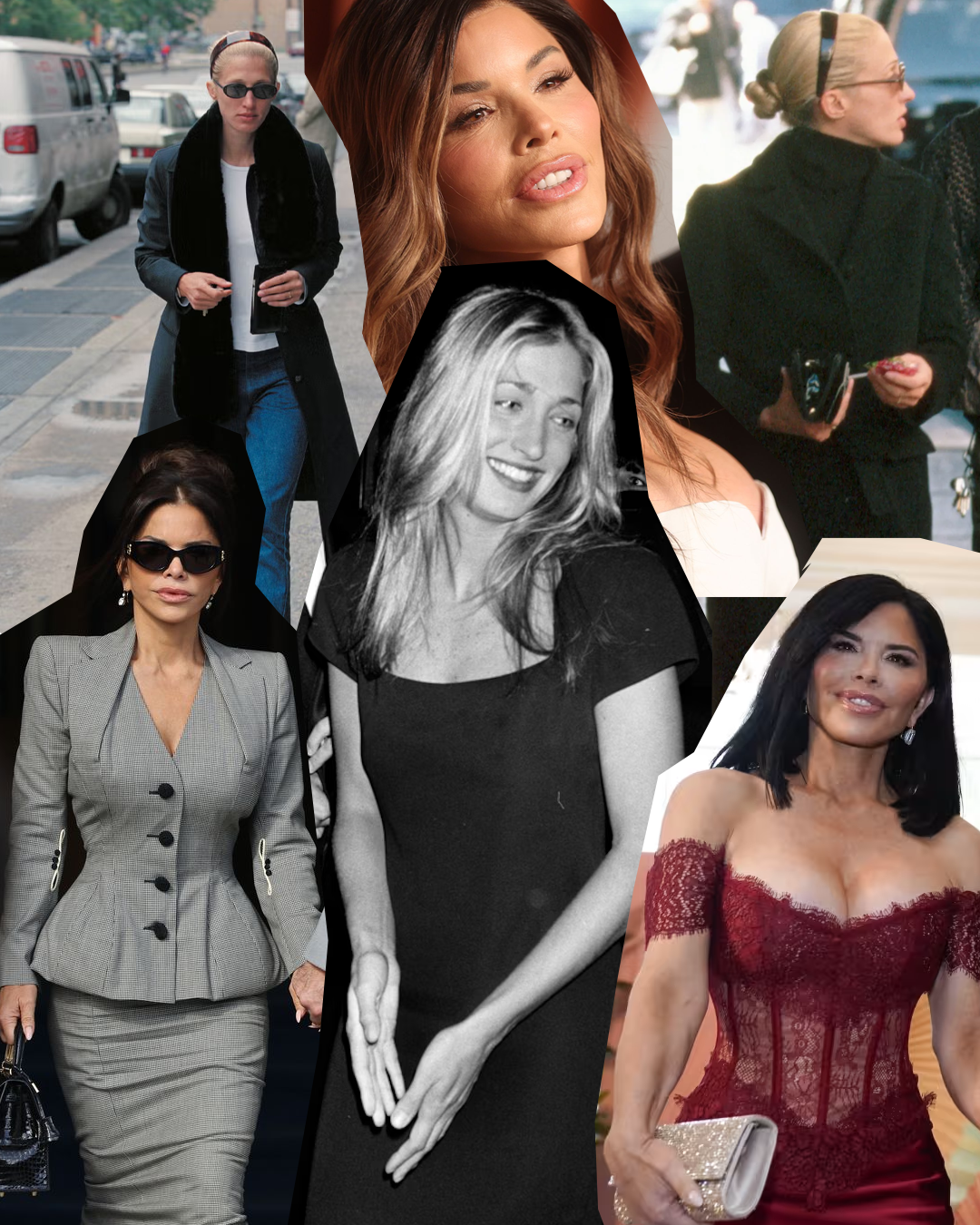Birds in a Gilded Rage: Is “Classy” Our Way of Coping?
Words: Naomi Kline
Make it stand out
In a recent episode of The Bald And The Beautiful, Trixie Mattel lamented the state of fashion, stating: “I am fascinated with the gen z fixation on dressing like a 90’s Republican like ‘Get my starched shirt and my culottes—by the way, I’m 21.’” This beige shift has been a long time coming as we move through the 2020s. Where the youth once yearned for the brightly colored, strawberry-adorned, highly patterned costumes in the ashes of millennial minimalism, there has been an abrupt turn back to basics where individuality once reigned. While this could be attributed as a familiar reaction against the saturated hopes of this decade’s beginning, the accompanying conversations surrounding this movement signal a deeper frustration.
Within the past three years, the terms “old money” and “quiet luxury” have been discussed to death. These concepts, titillating to young people online, seek to reveal and reproduce an assumed authenticity behind the ultrawealthy which goes beyond shallow notions of the ornate, trying to imitate their ease and authority through simplicity and unseen quality. It is an accessible imitation which prioritises values over commodity, although it still functions as commodification.
Aligning with this mentality, cultural commentary and critique surrounding the wealthy as individuals approximate the generally perceived values of the wealthy with how they display their status. Caroline Bessett Kennedy is revered for her timeless, classy, and elegant appearance, while the Kardashians are admonished for indulging in garish displays of gilded plastic wealth. In terms of how they display their money, whether in clothes, cars, or surgery, the rich are mockingly categorized as “old” and “new” money by those who have neither.
So, what distinguishes this from how the rich have always been emulated? Have the lower classes not always borrowed from the trends of the wealthy in an attempt to become them? What makes this broader movement towards the demure different is its ultimate reversal of the critique - the rich chastise the nouveau riche and lower classes for their attempts at reflecting a status they do not have, but now the latter have in turn retaliated by flipping the same critique onto the wealthy themselves. The emperor does in fact have clothes— just not the right ones.
The emperor does in fact have clothes— just not the right ones.
Like the Kardashians, Lauren Sánchez Bezos has received considerable ridicule for her appearance in its misalignment with her wealth and social status. In her wedding to Amazon founder Jeff Bezos this past summer, one of the resounding critiques of the event was not only in its display of unimaginable wealth amidst global economic despair, but in its aesthetic taste. Despite marrying one of the richest men in the world in a lavish multi-day Venetian ceremony, her disparagers regarded her look as tacky, classless, and cheap. The general consensus? Money can’t buy class.
The insult of tackiness or classlessness has always existed, but to whom the jab is directed has shifted. What were once ideals that trickled down are now directed from the bottom up, the lower class keeping the rich in check for not being rich properly. There is a kind of catharsis in insulting those with power; critiquing members of the upper class for lack of taste allows us to touch the untouchable. But ultimately, this is a crisis of economics, not aesthetics, and the frivolity of such insults barely touch our true grievances.
Noting this is not to defend any particular display of wealth as being better than another, but to point out how misguided the critique is. Finding righteousness in the way one carries themselves as opposed to the gaucheness of having extreme wealth does not change the material reality in which the wealthy still hold the power.
As wealth disparity grows and economic stability for the masses becomes more precarious, further resentment towards the upper class is inevitable. To be burdened with the visual opulence of wealth while one struggles for basic necessities is disheartening to say the least, but there is a sort of pride in being able to reclaim some agency in such a subjugated position.
The words themselves - “quiet”, taste, refinement - are abstractions, not necessarily quantified through external means, and potentially accessible to anyone regardless of their actual economic status. Taste is untouchable, self-determined, and more easily attainable than cash and assets, therefore, dismissing those with more wealth for lacking it allows one to feel an immaterial sense of superiority. Despite one’s economic or social status, having “class” (or obtaining the appearance of it through material means) acts as an intangible, but most importantly internal, quality that money does not necessarily provide.
Taste is untouchable, self-determined, and more easily attainable than cash and assets, therefore, dismissing those with more wealth for lacking it allows one to feel an immaterial sense of superiority.
It is not a sin to desire control, but agency does require honesty. Money can’t buy class, but equally being refined cannot change the fact that without cash, one ultimately lacks the status and stability that it offers. No amount of pale pink nails, linen (blend) button downs, or logo-free purses will change the fact that you can’t pay your bills, but the belief that such paraphernalia may give one an upper hand in terms of class divide is a false relief. Punching up against the rich and famous won’t make them any less so, and making fun of them will not close the gap.
But where the circumstances may currently remain unchanged, this interclass commentary may offer slight hope where the wealth gap may feel hopeless. In a world so very stratified, essence is the great equaliser. The qualities associated with classiness—a graceful and polite temperament, a mindfulness in how one appears in certain contexts, a notable sense of self-respect—are all values which one can possess without necessitating vast wealth. While certain appearances may signal such grace, the true power we may find within such inequity is not solely determined by what we can afford. Our external class frustrations may feel helpless, but we can still control the degree of pride and assurance we take in our daily lives. Amidst this struggle of power, we need not look upward for our own dignity, but inward.


